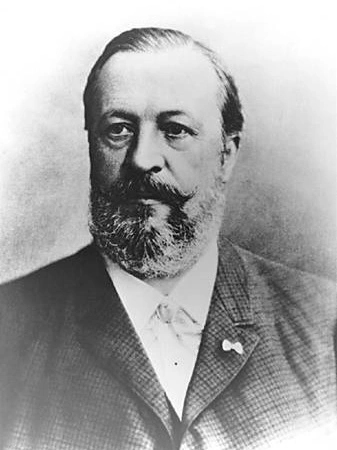WELS, OTTO
Publié le 22/02/2012

Extrait du document

WELS, OTTO (1873–1939), politician; on 23 March 1933, before the Reichstag,*
he bravely condemned Hitler's* proposed Enabling Act.* Born to a Berlin*
restaurant proprietor, he apprenticed as an upholsterer. At seventeen he joined
the SPD and became Brandenburg's Party secretary in 1907 and chairman of
the Vorwa¨rts* press organization in 1908. He was also a trade-union* activist.
He was elected to the Reichstag in 1912 and, working with Friedrich Ebert*
during World War I, he championed the SPD's promotion of Burgfrieden with
the Kaiserreich.
Wels sat with the Berlin Workers' and Soldiers' Councils* during the November
Revolution.* As Berlin's commandant, charged with defending the
Council of People's Representatives,* he was arrested by revolutionary sailors
on 23 December 1918 for refusing to meet pay demands. When his life was
threatened, the council's three SPD members (Ebert, Philipp Scheidemann,* and
Otto Landsberg*) rescued him with Imperial Army troops. The action provoked
the resignation of the council's three Independent Socialists.*
A political pragmatist, Wels promoted coalition politics. He entered the National
Assembly* and remained in the Reichstag until 1933; throughout, he was
a member of the SPD's Parteivorstand, a position he had held since 1913. With
Carl Legien,* he incited the general strike during the March 1920 Kapp* Putsch
that toppled the illicit regime; in the putsch's aftermath he forced Gustav
Noske's* resignation as Defense Minister, but then rejected the Defense portfolio.
Wary of the Reichswehr,* he championed the Reichsbanner.*
From 1921 Wels was the perennial cochairman of the annual SPD congress.
In 1931 he succeeded Hermann Mu¨ller* as senior Party chairman and Reichstag
faction leader. Afraid of fomenting civil war or a military dictatorship, he came
out against a general strike in the wake of Franz von Papen's* July 1932 coup
against the Prussian government. Yet he was Hitler's outspoken opponent; on
23 March 1933, in response to the proposed Enabling Act, he exclaimed that
no blessing would accrue from ‘‘a peace imposed by violence''; ‘‘one can take
our freedom and our lives, but not our honor.'' He was fortunate to escape the
chamber and soon fled Germany. He lived initially in Prague and led the exiled
SPD in Paris from 1938. He died shortly after the outbreak of World War II.
Liens utiles
- Rank, Otto - psychologie & psychanalyse.
- ÉTAT JURIDIQUE (L’) Otto Bähr
- SACRÉ (Le) Rudolf Otto (Résumé et analyse)
- OTTO DIX LA GUERRE
- TRAUMATISME DE LA NAISSANCE (LE), Otto Rank (résumé & analyse)
